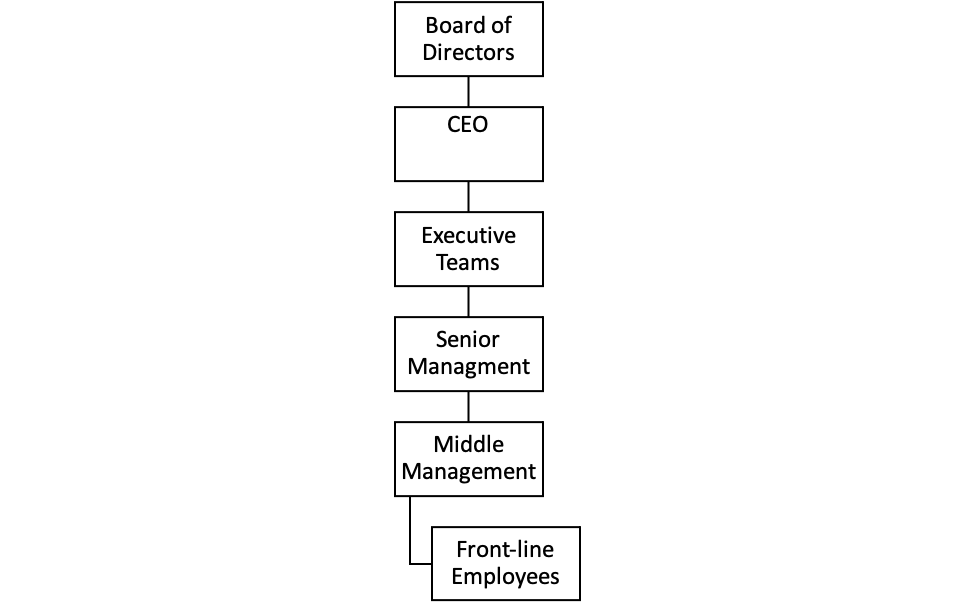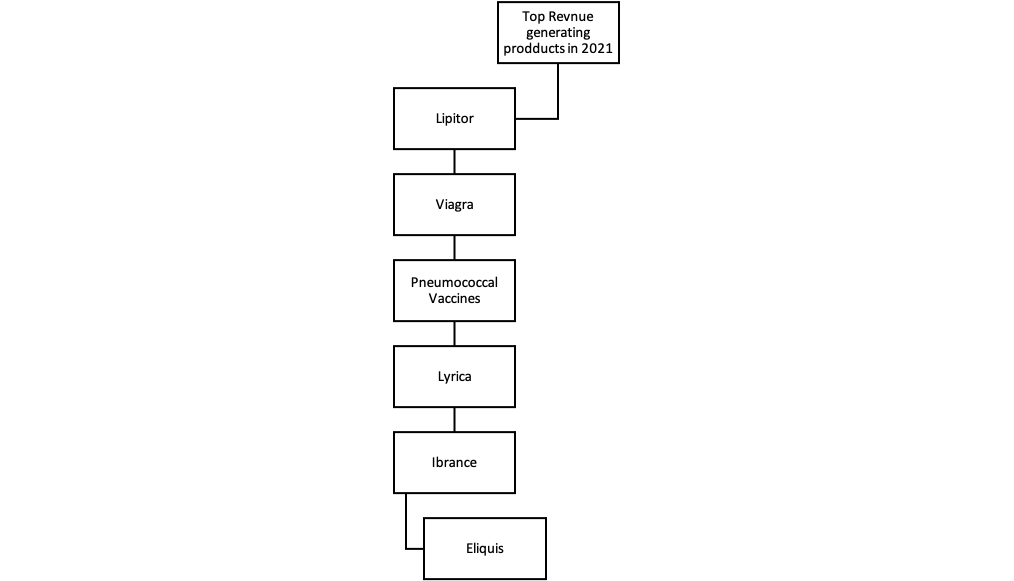Pfizer is a pharmaceutical conglomerate with operations in more than 190 countries and a global workforce of over 100,000. In addition to its main office in New York City, the corporation also maintains regional hubs in London, United Kingdom and Dubai, United Arab Emirates. The United States, Europe, Asia, and Latin America are just a few places where Pfizer has established research and development centers, production locations, and offices. It also has several sales and marketing offices all over the globe, including in Africa, Australia, and Canada, and a significant presence in key countries like China, Japan, and India (Thacker, 2021). In addition to producing the anti-inflammatory medicine Celebrex and the cholesterol-lowering pharmaceutical Lipitor, the business also manufactures the erectile dysfunction therapy Viagra. Pfizer also does R&D in the fields of cancer, immunology, and rare disorders.
Company history
Pfizer is a pharmaceutical company founded in 1849 by cousins Charles Pfizer and Charles Erhart in Brooklyn, New York. The company originally focused on producing chemicals for food and drink manufacturing but soon shifted its focus to producing pharmaceuticals. In 1857, Pfizer introduced a new drug called santonin, which was used to treat parasitic worms and helped establish the company’s reputation in the pharmaceutical industry (Pfizer, 2020).
In the late 19th and early 20th centuries, Pfizer continued to expand and introduce new products, including the first mass-produced antibiotic, penicillin, during World War II. Pfizer also developed other notable drugs, such as Terramycin (an antibiotic) and Viagra (a treatment for erectile dysfunction) (Pfizer, 2020). In the late 20th century, Pfizer began to expand through acquisitions, including the acquisition of Warner-Lambert in 2000, which brought the blockbuster drug Lipitor (a cholesterol-lowering medication) into Pfizer’s portfolio (Pfizer, 2020). In 2009, Pfizer also completed the acquisition of the pharmaceutical company Wyeth. More recently, Pfizer has focused on developing and producing vaccines, including the COVID-19 vaccine developed in partnership with BioNTech, which received Emergency Use Authorization from the US FDA in December 2020. The company also continues to develop and research new drugs for various diseases and conditions.
Organization

Pfizer is a large multinational pharmaceutical company structured into several business units. These business units are focused on specific therapeutic areas or product lines, and a president or senior vice president leads each. The business units include Biopharmaceuticals, Upjohn, Consumer Healthcare, Oncology, Inflammation and Immunology, Rare Disease, Internal Medicine and Vaccines and Antimicrobial (Pfizer, 2020). Each business unit has its research and development, manufacturing, and marketing teams, which work together to develop and bring new products to the market. In addition to these business units, several support functions operate across the company, such as finance, human resources, legal, and IT. These support functions provide vital services to the company and help ensure it runs smoothly and efficiently. The company is led by a CEO and a Board of Directors, who are responsible for making strategic decisions and ensuring that the company’s goals and objectives are met.
Pfizer’s organizational structure is generally divided into several levels, starting with the Board of Directors at the top, followed by the Chief Executive Officer (CEO). The next level is the Executive Team, which includes the heads of the main business units and functional groups within the company, such as the President of Innovative Health, the President of Upjohn, the Head of Consumer Healthcare, the Head of Research and Development, Head of Finance, Head of Human Resources, and Head of Operations. The Senior Management level includes vice presidents and other senior leaders responsible for specific areas of the company, such as sales and marketing, research and development, finance, human resources and operations. The Middle Management level includes Regional Managers and Department Managers. Finally, the last level includes front-line employees, such as Research Scientists, Sales Representatives, and Production Workers. However, it’s worth noting that this is a general structure, and it can vary depending on the size, complexity and the way the company is divided. Furthermore, this structure can change over time as the company evolves and adapts to changing market conditions.
Main products and services
Pfizer primarily generates revenue through selling its pharmaceutical and consumer health products. The company has an intense research and development program, which allows it to bring new products to the market and maintain a steady pipeline of products in various stages of development. Pfizer is primarily a pharmaceutical company, and its main products and services include prescription drugs, vaccines, and consumer health products. The company’s product portfolio is diverse and contains treatments for various diseases and conditions, such as cancer, heart disease, diabetes, and infectious diseases. Some of its well-known products include Lipitor, Viagra, and Pneumovax. In addition to its core pharmaceutical products, Pfizer sells consumer health products, such as over-the-counter (OTC) medications, vitamins, and animal health products (Pfizer, 2020). In addition, the company generates revenue through licensing agreements, collaborations, and partnerships with other companies and organizations. Among Pfizer’s top revenue-generating products and services are Lipitor, Viagra, Pneumococcal Vaccines, Lyrica, Ibrance, Eliquis, Xeljanz, Chantix, Prevenar 13, and Norvasc (Pfizer, 2020).

The geographic area of operations
Pfizer operates in a global market and sells its products in various countries worldwide. The company has a strong presence in developed markets such as the United States, Europe, and Japan and emerging markets such as China, India, and Brazil. Pfizer has a global network of subsidiaries and affiliates that allow it to sell its products in over 150 countries (Pfizer, 2020). The company also exports its products to other countries through partnerships and distribution agreements. In addition, Pfizer has a strong online presence, allowing customers to purchase products directly from the company’s website in some countries. Overall, Pfizer’s geographic area of operations is worldwide, with a strong focus on major markets and a growing presence in emerging markets (Pfizer, 2020). However, since the company’s geographic area of operations is worldwide, with a strong focus on major markets and a growing presence in emerging markets, the company has created an extensive product portfolio and intense research and development capabilities which have helped it become one of the leading pharmaceutical companies in the world.
Recent developments
Pfizer has made several key developments and announcements in recent years. In 2020, the company announced it had reached a milestone in collaboration with German biotech firm BioNTech to develop a COVID-19 vaccine. The vaccine, which uses BioNTech’s messenger RNA technology, was shown to be more than 90% effective in preventing COVID-19 in clinical trials (Pfizer, 2020). This was a major breakthrough in the fight against the pandemic and led to the vaccine being authorized for emergency use in several countries. Pfizer and BioNTech have since signed agreements to supply their vaccine to governments worldwide. In addition to their work on the COVID-19 vaccine, Pfizer has also made significant strides in developing new treatments for various medical conditions. In 2019, the company announced that it had received FDA approval for its breast cancer drug, Ibrance, and its lung cancer drug, Xalkori (Pfizer, 2020). Pfizer also strongly focuses on researching and developing treatments for Alzheimer’s and other neurodegenerative disorders. Pfizer is also committed to sustainability and corporate social responsibility. The company has set several ambitious goals to reduce its environmental impact, including reducing greenhouse gas emissions and increasing its use of renewable energy. Additionally, Pfizer has committed to providing access to healthcare in underserved communities through its programs, such as Pfizer for Living and Pfizer Corporate Responsibility.
References
Pfizer. (2020). Research and Development in the Pharmaceutical Industry | Pfizer EU Policy. Www.pfizereupolicy.eu. https://www.pfizereupolicy.eu/article/research-and-development-pharmaceutical-industry
Pfizer. (2021). Purpose | Pfizer. Pfizer.com. https://www.pfizer.com/science/research-development/breakthroughs#:~:text=Pfizer
Thacker, P. D. (2021). Covid-19: Researcher blows the whistle on data integrity issues in Pfizer’s vaccine trial. BMJ, 375, n2635. https://doi.org/10.1136/bmj.n2635
 write
write